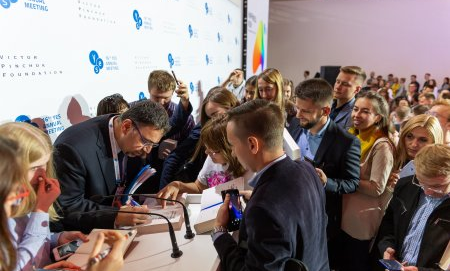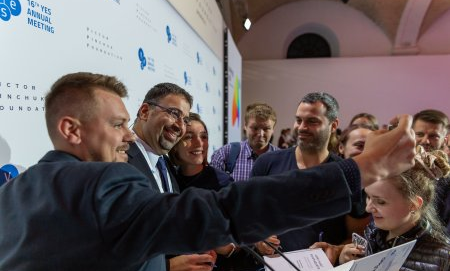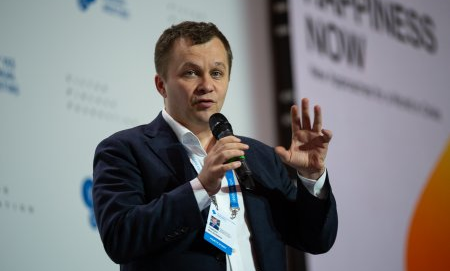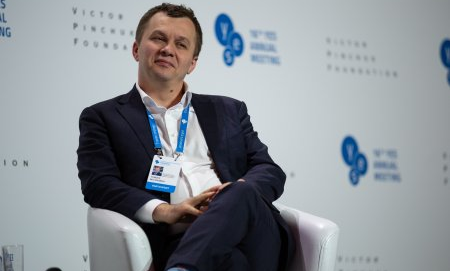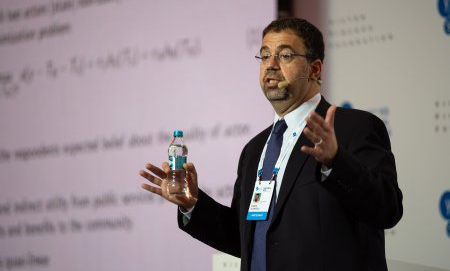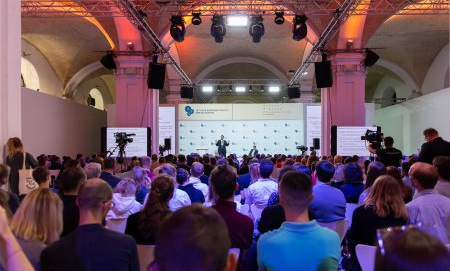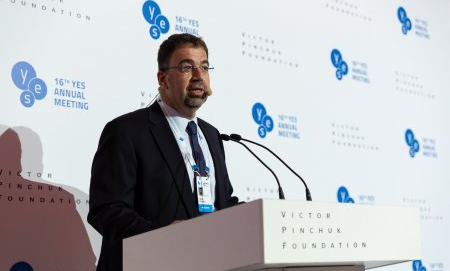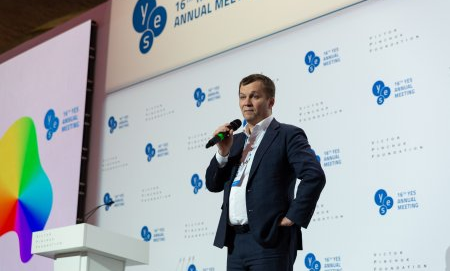Public Lectures: NEWS
Dominique Strauss-Kahn at a lecture for students and business and political leaders in Kyiv: Europe and the world need anti-crisis policy based on economic solidarity
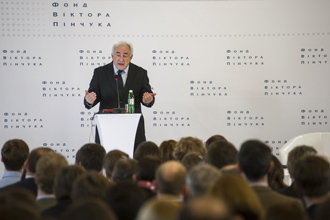 Despite some improvement in the global economy, the key threats are not eliminated, said former Managing Director of the International Monetary Fund Dominique Strauss-Kahn at a lecture for students and business and political leaders in Kyiv organized by the Victor Pinchuk Foundation. Therefore, the most important task now is to coordinate economic and fiscal policies in the European Union and globally, said Strauss-Kahn. The alternative to such joint action would be a deepening of the crisis and economic wars.
Despite some improvement in the global economy, the key threats are not eliminated, said former Managing Director of the International Monetary Fund Dominique Strauss-Kahn at a lecture for students and business and political leaders in Kyiv organized by the Victor Pinchuk Foundation. Therefore, the most important task now is to coordinate economic and fiscal policies in the European Union and globally, said Strauss-Kahn. The alternative to such joint action would be a deepening of the crisis and economic wars.
Dominique Strauss-Kahn shared his views on the future of the global economy and its implications for Europe and Ukraine at a lecture that was part of the Public Lectures project of the Victor Pinchuk Foundation. More than 300 Ukrainian students, as well as businessmen, politicians, diplomats and experts attended the event.
According to Dominique Strauss-Kahn, there are still a number of factors that may have a negative impact on economic development. In particular, it is about cross-border movement of capital, which may lead to new "bubbles" in the economy. Also, issues concerning liquidity, as well as problems in the banking sector, remain unresolved.
Video of the Public Lecture by Dominique Strauss-Kahn
Photo Gallery of the Public Lecture by Dominique Strauss-Kahn
The European Union experiences the most serious situation. Global success of the anti-crisis efforts depends on whether the Europeans succeed to coordinate economic and fiscal policies. “We had international cooperation during the crisis - the level which has never been seeing in the past. All the countries of the world facing the same problems in 2008 and 2009 decided to work together for the first time, not trying to be a free rider. But now with the relief the will to coordinate and cooperate is vanishing. If Europe fails, that would be the coup-de-grace, would be the end of the process. And in this case the consequences for the global economy will be absolutely dramatic.”
From the technical point of view, ensuring coordination of economic policies to prevent a new wave of the crisis is rather simple. According to the former IMF’s Managing Director, the difficulty lies in political aspects, in the increase of “economic nationalism” throughout the world and among the EU countries in particular. “To convince the world that it needs cooperation not war, and solving problems together through solidarity not by nationalism, Europeans need to convince their own citizen. And their own citizen are less and less convinced”, emphasized Srauss-Khan.
According to him, Europe is at a crossroads: “Either we can overcome the crisis with solidarity, or, if not, I’m afraid that will mean the end of the cooperation for a long time – not only in Europe but in the whole world. With all the consequences we know such an economic war. And sometimes beyond or behind the economic war there looms real war. Many wars in the past originated from economic problems.”
“That’s why the responsibility of political leaders – especially in the European Union – is so high”, he summed up, expressing his hope that after some first positive recent actions the necessary steps will be made in the near future.


